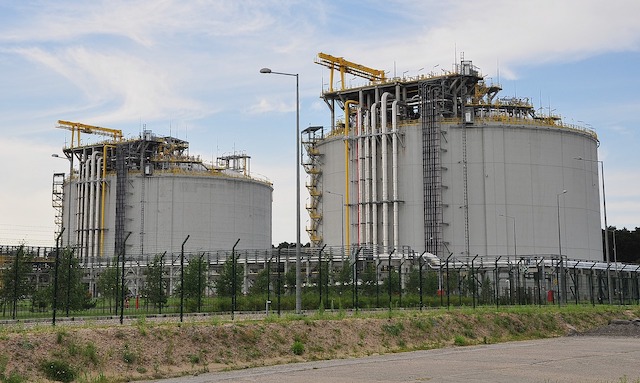Since the beginning of the year, international energy prices have been rising rapidly. At present, the price increases for gas and electricity are huge. In Germany for example, the price of electricity has risen by 212.5 % since January 2021 and the situation is similar in other EU countries¹. This is mainly due to the price of gas. Gas is used for heating, but also for electricity generation – thus the fossil fuel also influences electricity costs.
Why have energy prices risen so quickly?
There are several factors for the quick rise in energy costs. For one, energy demand has risen worldwide in the wake of the recovery from the Corona pandemic, as the economy is producing more again and at the same time, energy supply has also fallen. For example due to droughts in Brazil, where a lot of electricity is produced from hydro power. Furthermore, the winter was particularly harsh in many places, which reduced the reserves.
What do the high prices mean for consumers?
The price increase is clearly reflected in household electricity and heating bills. This means that many households will not be able to pay their energy bills. This in turn implies that they will have to save in other areas of daily life – such as food, health or education. As a result, those affected likely get caught in a downward spiral from which it is difficult to get out – even if energy costs have stabilised.
How do the EU states react?
Some EU states are already stepping in to protect households from the high energy costs. For example, France has announced to cap electricity and gas prices until April and to issue energy vouchers for households in need. Italy plans to spend €3 billion to relieve households of part of their electricity and gas bills, for example through tax cuts. And Spain has called for action at the EU level, such as a common platform for gas purchasing. So it is obvious that countries are dealing very differently with the problem of rising energy costs.
Now a closer look at the situation in Austria, one of the project’s participating partner countries. In Austria, the debate how to best react to rising energy costs is still ongoing. The government is planning to provide an energy cost compensation: each household is to receive a €150 voucher, as long as the income does not exceed € 5670 per month. If several people live in one household, the limit increases². This voucher is to be sent to each household by post so that they can redeem it with their energy supplier. The energy supplier then recovers the money from the state. Households must check for themselves whether they are eligible to accept the voucher based on their income. Data on main residence and data on electricity connections are collected to determine who is entitled to receive the energy cost compensation in from of a voucher. However, this strategy may already run into data protection problems that are unlikely to be easily solved. The solution is therefore still under negotiation.
One of the most affected countries is the United Kingdom, one of the partner countries in the EnergyMeasures project. The energy crisis is hitting the United Kingdom particularly hard. There are many reasons for this. We contacted our project partner Tighean Innse Gall (TIG) from the Outer Hebrides in Scotland to learn more about the current situation.
The situation in Scotland, but particularly in the Outer Hebrides, is coming to a head. Brian Whitington of Tighean innse Gall, a non-profit supporting energy vulnerable household in the Scottish Outer Hebrides, points out: “The number of households suffering from fuel shortages in the Outer Hebrides is the largest in Scotland and also in other parts of the UK if you look at the whole community.” Thus, rising energy costs are putting households on the islands under increasing pressure.
Given the current rise in energy costs, TIG anticipates that numbers of fuel poor households will rise from 40% to at least 60% in the Outer Hebrides. According to Whitington this assessment is based on inefficiency of homes, high energy use because of weather, aging demographic and low incomes in the community.
The government responds to the current energy crisis with measures to relieve consumers from rising energy prices. As Whitington explains: “The Scottish Government have a range of payments for fuel poor households, which includes a winter fuel payment and also payments for people with children and disabilities. UK wide there are Warm Home Discounts, which are £140 per household which is credited by government direct to energy payers accounts. This payment is for people on low incomes and those with certain circumstances but is subject to application and not all are successful. In both Scotland and England the governments are paying a £200 rebate to energy companies which is a loan that bill payers will need to repay via £40 a year. Additionally, both Scotland and Welsh governments are paying a £150 payment via municipalities to all households, not just fuel poor ones.”
When asked what challenges the current energy situation poses for the EnergyMeasures project and specifically for the role of TIG, Whitington explains: “We are anticipating a demand that we will find difficult to meet. Hence, we will provide advice and support to as many households as possible. Household energy plans will be critical to ensure that advice and support is available and households understand the next steps.”
The need to support low-energy households, as provided by the EnergyMeasures project, is thus highly relevant.
¹ Source: Frankfurter Allgemeine Zeitung: Strom um 212,5 Prozent teurer als im Januar 2021.
² Source: ORF.at: 150 Euro Kostenausgleich für viele Haushalte.
